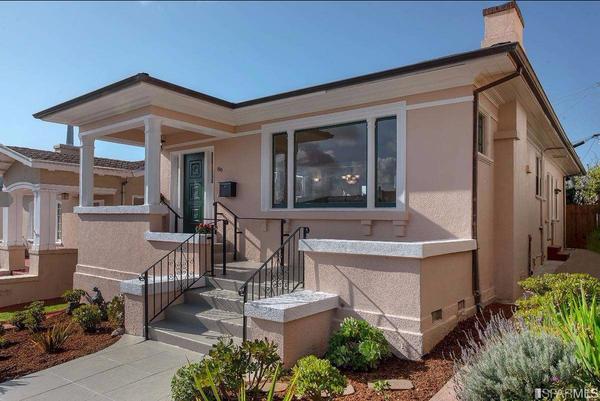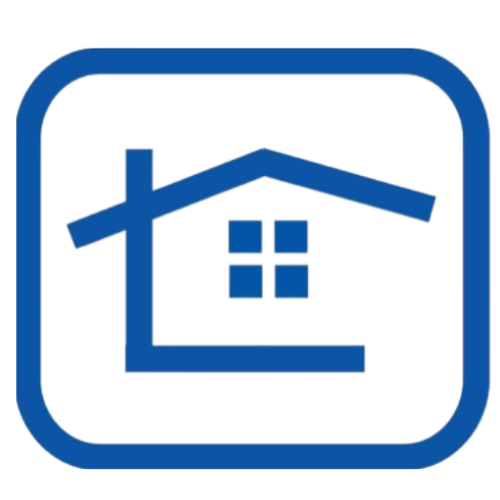
3 Essential Tips for Preparing Your Home for Showings
Your home looks its best when it’s clean and organized. Here are some other tips for preparing your home for showings for prospective buyers. In 2017 more than half a million homes were sold in Canada. With such a hot market, we understand why you want to show your home. Getting your home ready to sell can be emotional and quite difficult for some, as any moving process means you’ll have to dissociate from the home you have loved for so long. But, take heart, homeowners. We’ve got three essential tips for preparing your home for showings. Follow these guidelines for an easy and seamless way to achieve your next set of goals. It all starts with selling your home. 1. Remove Anything Personal Preparing your home for showings starts with removing yourself from the process. While this might seem cold or callous, you want any family that moves into your home to be able to see themselves living there happily. Decreasing the number of personal items you have on public view will make a huge difference and represents that you’re in the process of learning how to prepare your house for sale. And you don’t have to remove everything personal. You just want others that don’t know you — and never will — to picture themselves enjoying the place as their new home. 2. Think About Renting Storage If you’re getting your house ready to sell, you might want to put your belongings in storage. People you’re not acquainted with will be walking through your house, opening cabinets and drawers. It might be time to remove valuables and unnecessary furniture from your home. If you’re not already moved out, and you’re not exactly sure where you’re going, consider renting a storage unit nearby to house your extra belongings while you show your home. Moving is a perfect time to purge, but you may need to show your home quickly. Renting a storage unit could work wonders. Preparing your home for showings might also mean removing your favorite items from your house. Don’t leave appliances, curtains, or other things you intend to move. Put things in storage until you’ve got a buyer. 3. Call a Repairman Making minor repairs or calling in a professional is necessary for getting your house ready to sell. Strangers will be entering your home and judging it, some with an intention to purchase. You’ll want to incentivize that process as much as possible. Get rid of scuff marks, or perhaps give the house a new coat of paint. Fill spots in walls and cracks in grout and masonry. Have appliances, like heating and air conditioners tested, and make sure all your sinks and plumbing are running like a charm. And safety is key here, as well. Ensure that any stairs people might be walking on have safe foot and hand-holds. Make sure you have a home security system for possible intruders. Give your house a tune-up and it will be ready to sell! Preparing Your Home for Showings Whether it’s small repairs or removing yourself from your space, preparing your home for showings will help increase its appeal to buyers. And if you’re buying or selling in Victoria, you’re in luck. It’s one of the best small cities in the world. Check out our blog to learn more about the British Columbia real estate market. And happy home hunting!

The Top 5 Things to Know When Buying a House
Are you buying a home? If so, congrats! Buying a new house is an exciting, big step in life. Before you sign on to that 25-year mortgage, there are a few things to keep in mind. Take a look at the top 5 things we think you should know before buying a house. 1. Have Good Credit Before you even step foot in a potential house, take a look at your credit score. A good credit score (650 and up) will help you in the long run, not only with some of the best rates on the market but also with down payment costs. Anything too low will have you paying a higher down payment and other fees. If you know you want to apply for a mortgage loan in the next year, avoid opening any new credit cards. Focus on paying off the ones you have and making sure you won’t get penalized for paid, old, or settled debts. 2. Down Payments, Loans, & Closing Costs Now that you have an idea of what your credit looks like, it’s time to start saving up for your closing costs and down payment. A typical down payment costs anywhere between 5-20% of the house price. Keep in mind, down payments less than 20% will need to be insured by Canadian Mortgage and Housing Corporation (CMHC). Down payment costs also depend on the type of loan you’re approved for, for example, secured lines of credit max out at 65% LTV Loan to Value and require a larger down payment of at least 35%. Along with your down payment, you’ll also pay your closing costs at the time of closing. These fees vary by location, so check with your area to have an idea of how much to expect. If you don’t qualify for a 5% down payment mortgage, there are certain down payment assistance options. Such as using a personal loan, gift or using an equity loan on another property. There are hundreds of mortgage options available in Canada and that is why we suggest that our clients talk to a professional mortgage broker to find the best mortgage solution. 3. Budget, Budget, Budget After you pay the initial down payment and closing parts, the easy part is over (no, we aren’t joking). Before you pick a price range you’d like to pay for the house, you need to consider what your monthly mortgage will look like in addition to other monthly bills. You’ll most likely pay your mortgage, some taxes, interest, and mortgage insurance as one bill. A good rule of thumb is to not let this exceed 32% of your gross annual income. Here are just a few extra costs you could see each month: Property Taxes Insurance Home Maintenance Appliance repairs/replacement Don’t forget to include other finances which may pop up throughout the years like a roof replacement or a gas leak. 4. Decide on Dealbreakers Now that we’ve got costs out of the way, let’s talk dealbreakers. Consider what you want in your home. Can you live without crown moulding? What about a garage? Figure out what your dealbreakers are on houses and make a list of necessities. Good insulation, quality windows, and enough space to grow your family are a few that might come to mind. We recommend creating a needs and wants list. This ensures you stick to your needs and buy the right home. It also helps your Realtor(R) understand exactly what you need so they can “weed out” homes that don’t match your needs. This saves you a ton of time. 5. Get a Home Inspection Done Hooray! You’ve found a home within your budget with everything (or almost everything) you wanted. Congratulations! Before you sign the papers and move in, GET A HOME INSPECTION DONE. While everything may look fine on the surface, you never know what’s beneath the surface. Hire a professional to check for foundation issues and anything else like termites or a bad roof. They not only can tell you what needs fixing now but can also inform you of issues you may have in the future so that you can set up a savings account to pay for them. If there are some issues with the house, it may work in your favour to negotiate the buying price. Some sellers even offer to fix the issues before closing. While some sellers have already reduced their price to reflect the need for improvements. We always suggest that our clients attend the inspection and have a summary of the results with the inspector, while at the house. What to Know When Buying a House Buying a house, while exciting, can seem overwhelming if you aren’t sure what steps to take. It is our job to advise and guide you so that you’ll know what to look for when buying your starter home and your final home. For more things on real estate, interior design, and the likes, check out our blog!

Will You Be Affected By the NDP Speculation Tax?
*Photo provided by the Government of British Columbia As the B.C. NDP move forward with legislation approving implementation of their controversial speculation tax, many residents are left wondering if they’ll be on the hook for yet another home ownership cost. B.C.’s finance minister, Carol James is in charge of the legislation, and has gone on say that “Only those who own multiple properties and leave them empty in major cities will be asked to contribute. People with cottages at the lake, or cabins, or the islands, will not pay this tax. People with second homes outside of high-cost urban areas will not pay the tax.” The speculation tax is based on a percentage of the property value, and ranges from 0.5% to 2% depending on various conditions. B.C. residents with vacant properties will continue to be charged the lowest rate (0.5%), with a higher rate to Canadian property owners who aren’t B.C. residents, and highest rate (2%) applied to international property owners. What Do Party Leaders Think? British Columbia’s politicians have weighed in, and they’re not all happy. “This is the height of NDP arrogance and hypocrisy. Our goal is to defeat this bill because it is a phony tax. It accomplishes nothing except to grab revenue for the NDP.” said Liberal leader Andrew Wilkinson. B.C. Green Party Andrew Weaver has expressed concern over the bill as well, taking a more measured approach. “I still have concerns that Canadians are not being treated equally and that there is an insufficient role for local governments in determining what happens in their communities,” Weaver said in a statement. While the Liberal and NDP leaders seem united in their concern over the tax, the Green Party’s history of siding with the NDP minority government has many apprehensive that the party’s passive allegiance will see this bill become law. “We’re considering everything, but right now we are negotiating with the government to improve municipal input,” Weaver said. “We have a good working relationship with the NDP.” Liberal leader Andrew Wilkinson was unimpressed. “That’s classic Andrew Weaver,” Wilkinson said. “He talks tough, but then he always supports the government.” A collaboration between the two parties could easily lead to a defeat of this bill, but with the state of politics in the province today, it seems likely that British Columbians will be left holding the bag for another home ownership tax. For more on this story, as well as great giveaways, be sure to follow VictoriaHomes.com on Facebook here!
Categories
Recent Posts










